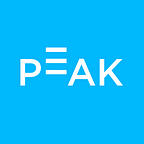The Science and Thinking Behind Peak’s New Pro Training Plans
Our cognitive neuroscientist, Erman Misirlisoy, explains the benefits of persistence and consistency
Our new training plans allow you to tailor your Peak Pro experience to suit you. You tell us how much and how often you want to train, and we help you commit to it. This is part of the growing customisation options we offer our valued Pro users.
Benefits from cognitive training depend on persistence and consistency. Many research studies looking for cognitive improvements following game play have trained people for more than 8 hours before assessing benefits (e.g. Green & Bavelier, Glass et al). This is a long time for short games like those in Peak so commitment to a continuous training plan is critical.
The Peak Pro training plans allow you to set the details for your training. These include which cognitive categories you most want to improve, how often you want to train, and how long you want to persist with the plan. Based on typical training parameters used in scientific research, if you want optimal cognitive improvements from your game training, you should rack up at least 8 hours of training within a couple of months.
A useful training schedule to select for your training plan might be 20 mins a day, 5 times a week, for a total of 5 weeks. This would give you just over 8 hours of training in total after the 5 week plan ends. Of course for some people this training might be too intensive, and for others it might be not be intensive enough. The training plans give you the flexibility to decide for yourself.
Perhaps the most important reason for setting up a training plan is to facilitate ‘implementation intentions’. This is a term from experimental psychology that refers to fully specified intentions that are linked to explicit future conditions (e.g. “If x happens, I will do y”). They create a clear mental plan and the intentions are more likely to automatically come to mind compared to less specific intentions like “I want to do y”. Simple and abstract intentions are frequently forgotten, in effect reducing motivation for goals that matter (e.g. “I should eat healthier”, “I want to travel to Japan at some point”). More concrete implementation intentions are better able to facilitate success when working towards goals (e.g. “When I am next hungry for a snack, I will eat an apple instead of a chocolate”, “As soon as I have £5000 in my bank account, I will book time off work to travel to Japan”).
Training plans make your intentions, hopes, and goals more explicit and therefore easier to follow through with. Make the most of Peak Pro by customising your own training plan and improving the prospects for your cognitive training. The more you put into it, the more you get out of it!
